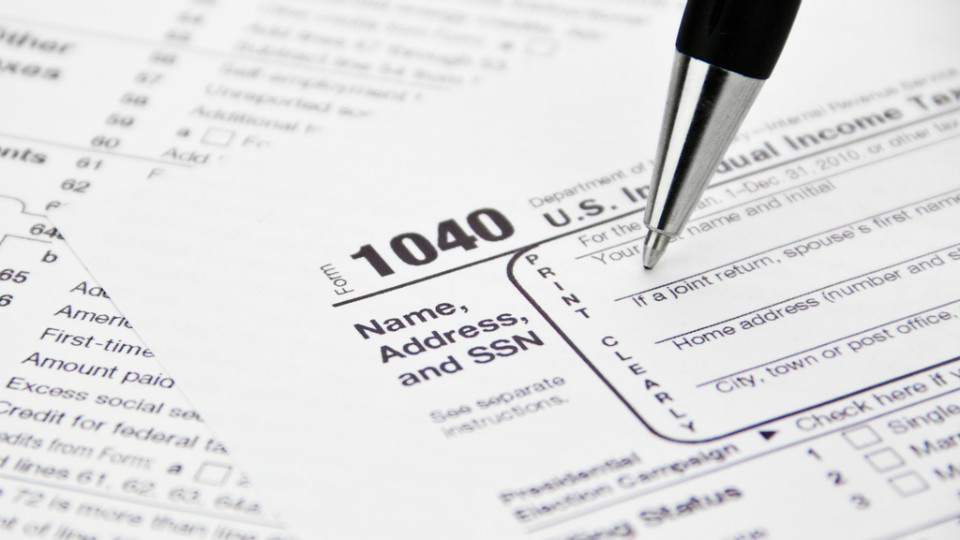
Navigate
- Your Personal Guide To Moving Abroad
Between Karina and me living abroad for almost nine years collectively—and Sydney jetting off for New Zealand soon—we’ve cornered the market on this.
Six years ago, I packed two suitcases for a tentative six months. Four years later, I was a bonafide resident of another country (library card and all!). But over the years, I was forced to slowly sort out my affairs in multiple visits to the States, things I wish I had the foresight to anticipate, like finances, taxes and even basic things like my cell phone plan.
Every expatriate’s story is different: I once knew a guy who came for a wedding, and never left. There was even a running gag about asking others if they had moved “for love or for work.” (Guess what our answer was.) No matter how different everyone’s background was, and my god, there were so many, it was interesting to see how everyone’s path led them to the same place.
Living abroad is an extended adventure, for sure, but of an entirely different kind.
In its best incarnation, its about immersion. Skipping through a town for a mere five days is just the briefest, most superficial introduction to a place. This is seeing past the curtain, understanding the true realities and digging deep, warts and all. Sort of like love. The real kind.
There are so many facets to moving abroad that it is hard to summarize in one post. This is the first installment in a series of posts that will cover the different aspects of moving abroad, whether you’re setting off for just a year or going for the long-haul stretch. This particular one deals with the biggies: visa and citizenship, finances, taxation and your cell plan back home.
Best piece of advice I ever got? If you stop enjoying it, you can always go back home.
Proper documentation
It’s easy to joke that someone can go live in Thailand for $400 a month, but that’s only half the story. Proper visa documentation is essentially the difference between being an illegal alien and gaining eventual citizenship.
First, I'd like to make one thing clear: if you at all plan to work in your intended country, you should have the proper work visa for that. There’s very little fun being deported at a moment’s notice—or being blackballed permanently. In some countries, there are visas built specifically for working on an extended holiday: Unsurprisingly, they are called holiday working visas.
People with remote sources of income (like digital nomads) often live illegally, because there is usually no discernible way to track the money as long as someone stays within the confines of a tourist visa. The main downside is that visitors will be subject to tourist visa restrictions, meaning, if the max amount of time that you’re allowed is 3 months, you have to leave and come back every 3 months. 1 Some people like to turn this into a vacation, and some people just go to the border, turn around and go right back (affectionately termed as a “visa run”).
The main problem with being an illegal alien and visa runs is that immigration officers can still track your movements through their system. Do this enough times, and if they even remotely suspect you’re living there under the radar, they can deny you entry back into the country.
This shit can backfire, and can backfire, and when it does, it often backfires in the most horrible way imaginable. One personal friend was refused entry back into Hong Kong after a visa run. Because she was stuck in mainland China, she was forced to ask friends to gather her belongings at her apartment and ship them. There was no other way for her to retrieve them. She also never came back to Hong Kong after that.
Meanwhile, being an official resident does come with its perks, even if it often requires additional hassle. In some instances, it comes with health benefits, proper local ID (which can be required for setting up a bank account), library card access, all simple things that people don't think about for their life.
This is no longer about just being a visitor; it's about living there. Living abroad isn’t necessarily glamorous; it can be as humdrum as back home. Changing lightbulbs are a normal facet of life, whether you’re living in Paris, Hong Kong or Wichita, Kan.
There are also financial benefits you stand to gain, along with the opportunity to gain permanent citizenship. For instance, if you lived and worked continuously in Hong Kong for seven years, you could gain permanent residency. Citizenship? Then you can live abroad forever if you want.
Finances
The main difference in being a legit resident is the financial opportunities you may have if you’re under the proper visa. Some countries may not let you open a bank account without proper local ID. So if you’re being paid in the local currency, you may not have much choice short of stuffing all of your money underneath a mattress.
Regarding bank accounts, the best U.S. bank account to have while abroad is Charles Schwab. That’s because Schwab charges no fees whether you’re withdrawing from an ATM or making a transaction with the debit card worldwide. Generally, the fee is assessed during the transaction and then refunded to you at the end of every month.
The main caveat with Schwab is you’ll have to open the bank account while you’re stateside, so do this before you leave. The bank also doesn’t have the easiest setup, but once you deal with the initial hassle, it’s one of those things you never have to worry about again.
For depositing foreign cash or checks, Schwab isn’t necessarily the best—it is still a U.S.-based account—but it works well if your main income comes from the States and your employer can deposit into the account. Actually, even if you’re making income in a different currency, it’s still a good idea to open a Schwab account for the purposes of transferring money out when you move back to the U.S.
That’s because the Schwab brokerage account, used to keep the checking account free, is the cheapest option for moving large amounts of money from overseas banks into a U.S. account. Once the money is transferred to the brokerage account, it can be moved into the accompanying checking account. Three years ago, I compared several international wire transfers using different banks. Charles Schwab performed the best, taking a spread of less than 0.2% while Bank of America took 4.4%. This becomes incredibly useful after you’ve lived abroad for a significant amount of time and have amassed fairly significant savings.
That’s because other international wire transfers—often incredibly expensive and can cost up to $30 on each end plus a 3% conversion fee—is not an appealing option. (The other option is carrying out $10,000 in cash back every time you fly back to the U.S. on every trip. I don’t know how many people feel comfortable with that. That said, some countries, like China, may offer you no choice because there’s no option to transfer money outside international borders.)
I’m a big fan of having a backup ATM source and at least two international-friendly credit cards on hand. Make sure all your cards are up to date (ie, aren’t close to expiring) before you leave, because otherwise, the only other way to get them is through international snail mail. Don’t forget that this will be the only method of accessing funds back home for a while. Life can get substantially more difficult if there’s no way to access it for six months.2
For the record, in case there is any confusion, you do not actually need to obtain foreign cash until you reach your destination. What do you think the ATM cards are for?
Taxes

Still gotta deal with it. (Ken Teegardin / Flickr)
Congratulations on being American! The United States has the unique situation of being one of the only countries in the world to double tax its citizens if you make an income abroad (the only other country is Eritrea, a small country in Africa I’ve never heard of before). Quite simply, it means that not only do you have to pay taxes on the income you make abroad to the country you’re currently residing in, but Uncle Sam will also claim his fair share on anything over $97,600 that you make. Meaning if you make $105,000, $7,400 is eligible for the U.S to tax. Bummer. The upside is you have a first-world problem in order to qualify for this unique situation. 3
But here’s the thing—and this is where having a proper work/tax situation may work to your benefit. Most people forget countries have different income tax rates around the world and, in a low-tax country like Hong Kong or Singapore, this can work drastically to your advantage, at least for the first $97,600. For example, Hong Kong caps its tax rate at 15% even for its highest tier of workers. Even as a derivatives trader making a million dollars. Because of this, my take-home disposable income was often significantly higher than if I was still living Stateside. 4
Still, there is another way to qualify for the foreign earned income exclusion without the proper documents. The IRS makes it clear that you can be a U.S. citizen who is physically present in a foreign country or countries for at least 330 full days during any period of 12 consecutive months. I once qualified for this exclusion while I was in between work visas. It’s a good option for people who have barely spent any time in the United States.
The exclusion probably doesn’t matter if you’re making a bajillion dollars, though. That’s why American citizens that never plan to move back (and are doing incredibly well for themselves) often renounce their citizenship. It’s purely for tax reasons.
Other than that, the suckiest thing about living abroad is reporting your taxes to the IRS without the standard W-9 paperwork. The foreign earned income bit is so unusual that even most tax accountants don’t know how the rule works. It’s also why I ended up doing my taxes by myself to make sure they were accurate. The bright spot is that you’re automatically guaranteed an extension by simply being abroad.
Communication
If you plan on using your current phone abroad, the first thing you’ll want to make sure is it’s unlocked. In layman’s terms, all this means is you can use the phone on any mobile network, not just the one that it’s registered to. Generally, you’ll want to make sure your phone is GSM-compatible—GSM is the world standard abroad—which in short means it’s able to function on T-Mobile or AT&T in the U.S.
Many manufacturers offer the ability to buy unlocked phones at the full, unsubsidized cost. But if your phone is locked or subsidized, T-Mobile and AT&T offers instructions for unlocking the device. For instance, on T-Mobile, the account must have been active for at least 40 days and fulfill all qualifying criteria. The mobile network carrier even goes so far as to offer an Android app to make the unlock process as simple as possible. With AT&T, the carrier requires you to have had an account for at least 60 days.
There are also online third-party retailers that will unlock your phone for a small fee (anywhere from $10-30) if you can’t go through your carrier. I’ve done this with no issue when I’ve been desperate for a last-minute solution. On the bright side, unlocking your phone often raises the resell value of the device if you ever decide to flip it for a new device.
The next step is to figure out whether you actually need to keep your current service. Prepaid phone users can just ditch their next payment until they return home. For postpaid customers, things can get a little bit tricky since canceling your phone line can mean canceling your phone number. But there’s a solution for this too: T-Mobile allows customers to “seasonally suspend” any lines that aren’t being used for 90 straight days while keeping the account active. In return, they charge $10 monthly for account maintenance. (This can only be used once per year but customer service has bent the rules for me once or twice.)
There is also the option for a full suspension and extra considerations if you’re military, but it is basically the best option for keeping your number at home. Unsurprisingly, AT&T also offers options for suspension as well though it’s a little bit less clear on how much the fees will cost you. For what it’s worth, before you suspend, T-Mobile has one of the most travel-friendly plans out there, but I personally think if you’re abroad for more than two months, it is probably a lot easier to suspend the account and get a local prepaid SIM card at your destination.
There is usually very little need to go ahead and figure out which network to go with in your new country ahead of time. I like to do a little research using Google Translate to figure out prices and options, so I can go into a proper store once I land to get set up right away. But if for you’re still deciding when you arrive, there are usually abundant prepaid options abroad that will let you try a few networks out before you commit to a contract. When I lived in Hong Kong, I was prepaid for about a year before I finally switched to a proper contract.
If for some reason you have plans to be abroad for at least a year or more, I find it easier to port the phone number to Google Voice so that you’ll be able to keep the number once you return and cancel the line. At some point, paying $80 monthly isn’t worth it and this was exacerbated the longer and longer I stayed abroad. This has the added benefit of staying in contact with family and friends more easily with almost zero setup on their end, keep tracked of my missed calls and voicemails. Have you ever tried converting a slew of people to Whatsapp?
That said, the options for keeping in touch while you're abroad is virtually limitless. We'll cover this in the next installment. There's no reason to turn this post into a book just yet.





